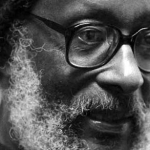The Barbados Advocate, Thursday, january 19, 1995, page 4
MILDRED COLLYMORE told the No. 3 Supreme Court yesterday that when she recovered from an attack with a stone she found herself "washed-way" in blood.
Collymore said also that accused Philamena Hinds came back to move the rock but she would not let her.
The complainant said that on the day of the incident she left her home and went over to her daughter's on the other side of the road to cut the grass from around the place. When she got to the spot she said dirt was on the grass and she took the hoe and raked it away.
While she was doing this, the witness said, Hinds' son, Gline, came and spoke to her and then went back up the road. She said Hinds came next and spoke to her but she did not hear what she said.
The witness added that she was holding down, and on looking up she was struck suddenly with a big rock in her right forehead.
"I tumble down and when I come to myself I was wash-way in blood." she testified...
Collymore told the court [that] after she found out she was bleeding she went to a neighbour's home and called the police.
She was later taken tothe Queen Elizabeth Hospital and detained for three days, she said
Asked by prosecutor Ms Donna Babb if she had quarrelled withCollymore before the incident she replied no. The witness also told the prosecutor that she did not interfere with the accused.
Waldron-Ramsay suggested to the witness that on the day of the incident, marl was on the accused woman's property and she was pulling it down to make a road for her daughter and son-in-law.
She denied the suggestion.
He further told Hinds that she told the accused that she cold not stop her from pulling down the marl, and this she denied.
Waldron-Ramsay put it to the witness that when she refused to stop moving the marl the accused left her and went back home, but Hinds said this was not < true.
Continuing his cross-examination, Waldron-Ramsay suggested to Hinds that Collymore came to her a second time and told her to stop racking away her dirt but the witness [the accused!] again denied this ever took place.
The witness further denied the suggestion that this second time she became more vicious and told the accused [Hinds] that if she did not move her
"X X X X
she would lick her to
X X X X
down."
Waldron-Ramsay also suggested to Collymore that she had the hoe in the air ready to lick down Hinds, but she denied this.
DATE TREE HILL CASE
The crown will call its third witness this morning in the trial of 48-year-old Philamena Hinds, before Mr Justice Frederick Waterman in No. 3 Supreme Court.
Hinds, a machine operator, of Date Tree Hill, St Peter, is charged with causing grievous bodily harm to 65-year-old Mildred Collymore, of Date Tree Hill, on December 13, 1993, with intent to maim, disfigure or disable her...
Hinds, who pleaded not guilty... is represented by attorney-at-law Dr. Waldo Waldron Ramsay while the Crown's case is being put by Acting Crown Counsel Donna Babb.
Collymore's 45-year-old-daughter, Linda, is acting as her interpreter, because the witness has a hearing problem.





















Comment form: